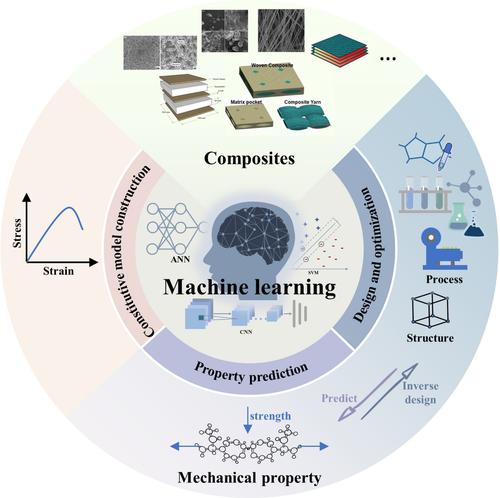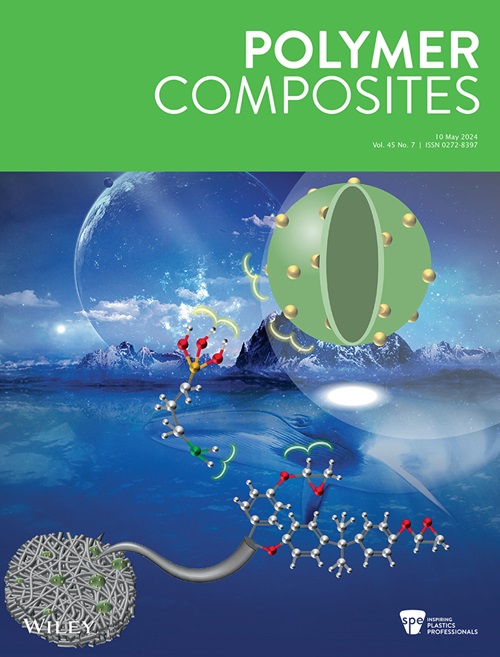机器学习在复合材料机械性能方面的最新应用综述
IF 4.7
2区 材料科学
Q2 MATERIALS SCIENCE, COMPOSITES
引用次数: 0
摘要
在人类需求的推动下,复合材料因其卓越的机械性能正得到广泛的研究和应用。传统上,材料科学的研究方法主要依靠经验理论或实验试错法。然而,复合材料复杂性的增加导致其机械行为更加错综复杂。因此,使用传统的研究方法可能无法达到足够的效率。材料科学正迅速过渡到数据驱动时代,机器学习(ML)已成为加快材料开发和增强性能预测的有力工具。在将 ML 应用于复合材料力学研究方面,已经取得了重大进展。在这篇综述文章中,我们阐释了在构建各向同性和各向异性复合材料构成模型时所采用的各种 ML 方法,并深入探讨了有关构建 ML 模型的研究,这些模型利用从复合材料工艺、结构和环境条件中获得的输入数据来预测材料的力学性能。此外,我们还总结了最近在复合材料设计和优化方面值得关注的 ML 应用。最后,我们为未来的发展提出了可能的前瞻性观点,旨在通过 ML 为材料科学与技术的进步提供重要的科学指导。本文章由计算机程序翻译,如有差异,请以英文原文为准。

A review on recent applications of machine learning in mechanical properties of composites
Composites are undergoing extensive research and utilization due to their excellent mechanical properties, driven by human needs. Traditionally, the research methods in materials science predominantly rely on empirical theory or experimental trial and error approaches. However, the increased complexity of composite materials results in a greater intricacy in their mechanical behavior. Consequently, the utilization of traditional research methods may not achieve sufficient efficiency. Materials science is rapidly transitioning into a data-driven era, with machine learning (ML) emerging as a potent tool to expedite materials development and enhance properties prediction. Significant advancements have been achieved in the application of ML to the study of composite mechanics. In this review article, we elucidate various ML methods employed in the construction of constitutive models for isotropic and anisotropic composites, and delve into the research on construction ML models that leverage input data derived from composite processes, structures, and environmental conditions to predict material mechanical properties. Additionally, we summarize recent noteworthy ML applications in composite design and optimization. Finally, possible prospective viewpoints are proposed for future development, with the aim of providing essential scientific guidance for advancing material science and technology through ML.
求助全文
通过发布文献求助,成功后即可免费获取论文全文。
去求助
来源期刊

Polymer Composites
工程技术-材料科学:复合
CiteScore
7.50
自引率
32.70%
发文量
673
审稿时长
3.1 months
期刊介绍:
Polymer Composites is the engineering and scientific journal serving the fields of reinforced plastics and polymer composites including research, production, processing, and applications. PC brings you the details of developments in this rapidly expanding area of technology long before they are commercial realities.
 求助内容:
求助内容: 应助结果提醒方式:
应助结果提醒方式:


